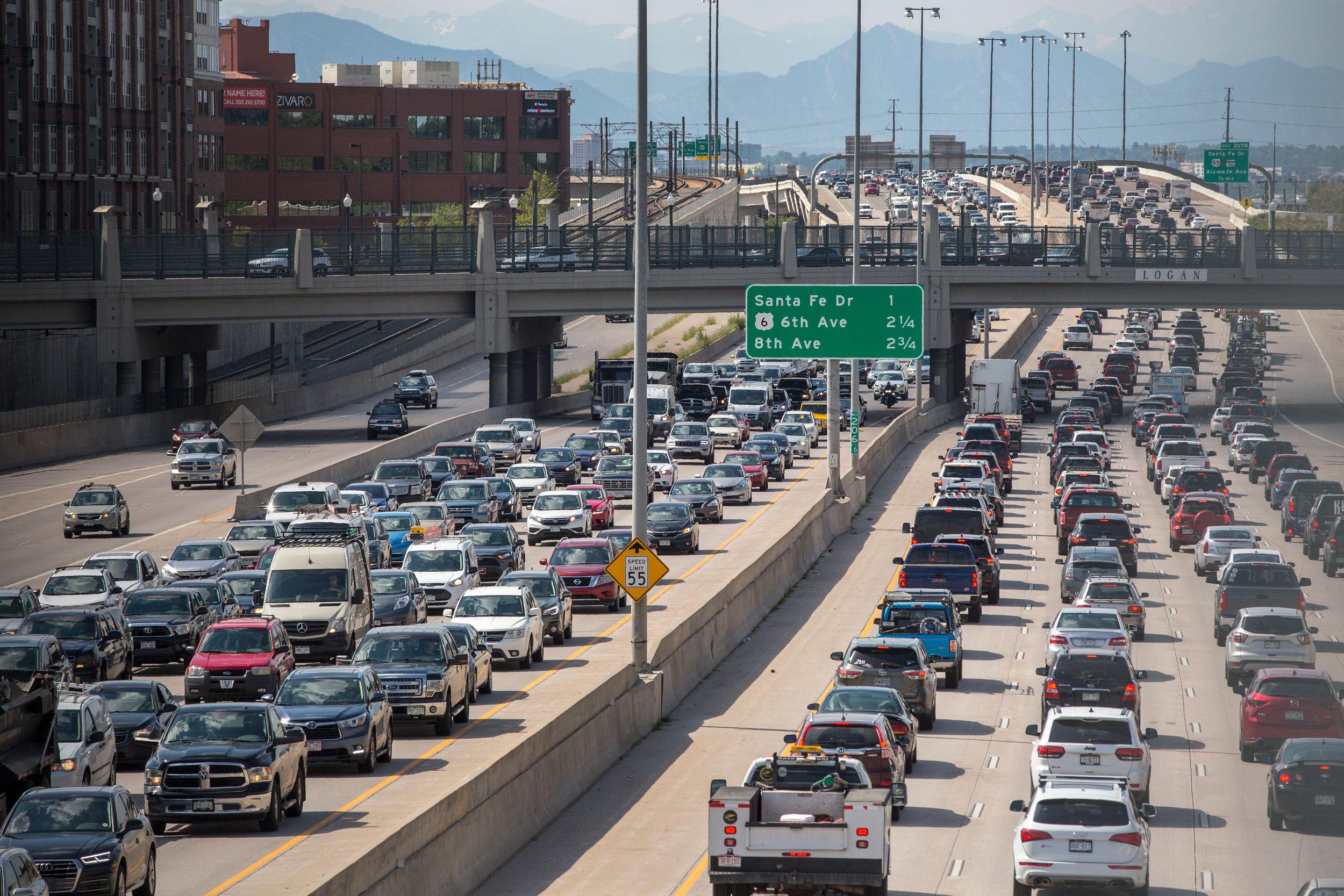
Colorado has joined a multistate lawsuit challenging the Trump administration's move to stop states from setting vehicle emissions standards stricter than the federal government's.
California is permitted to set its own emission standards under a federal Clean Air Act waiver, which was authorized in 2013. It has since been adopted by 12 other states, including Colorado in 2018 and 2019.
This week, the Trump administration moved to end California's ability to set its own standards. Colorado and 13 other states and the District of Columbia are suing in federal court to stop them.
The lawsuit, released Friday, argues that the regulation is unlawful and exceeds the authority of the National Highway Traffic Safety Administration, contravenes Congressional intent, and is "arbitrary and capricious."
"Unfortunately with Washington backtracking even more than ever before, it's up to states," said Governor Jared Polis. "It's up to local governments, it's up to the private sector to lead the way in improving our air quality and rising to the occasion of our climate challenge."
Colorado also adopted California's Zero-Emission Vehicle Program in order to attempt to reduce smog and offer more battery powered vehicle options. Some automakers are concerned that having different federal and state standards on emissions would be onerous to their businesses.
Polis said the Trump administration is trying to essentially kill electric vehicles.
"We think they ought to be available to people," Polis said. "When people want internal combustion engines, buy one of those cars, if you want an electric vehicle, buy it. But we think the answer is more consumer choice, not less, and we're willing to go to court to defend that."
By 2023, under California's program, ZEVs should account for at least 5 percent of cars sold by Colorado dealers, according to the governor's office. By 2030, 800,000 ZEVs may be on Colorado highways, that could reduce emissions by three million metric tons, according to the Governor's Energy Office. Adoption of the program followed Polis’ January executive order aimed at getting more electric vehicles on Colorado roads.









